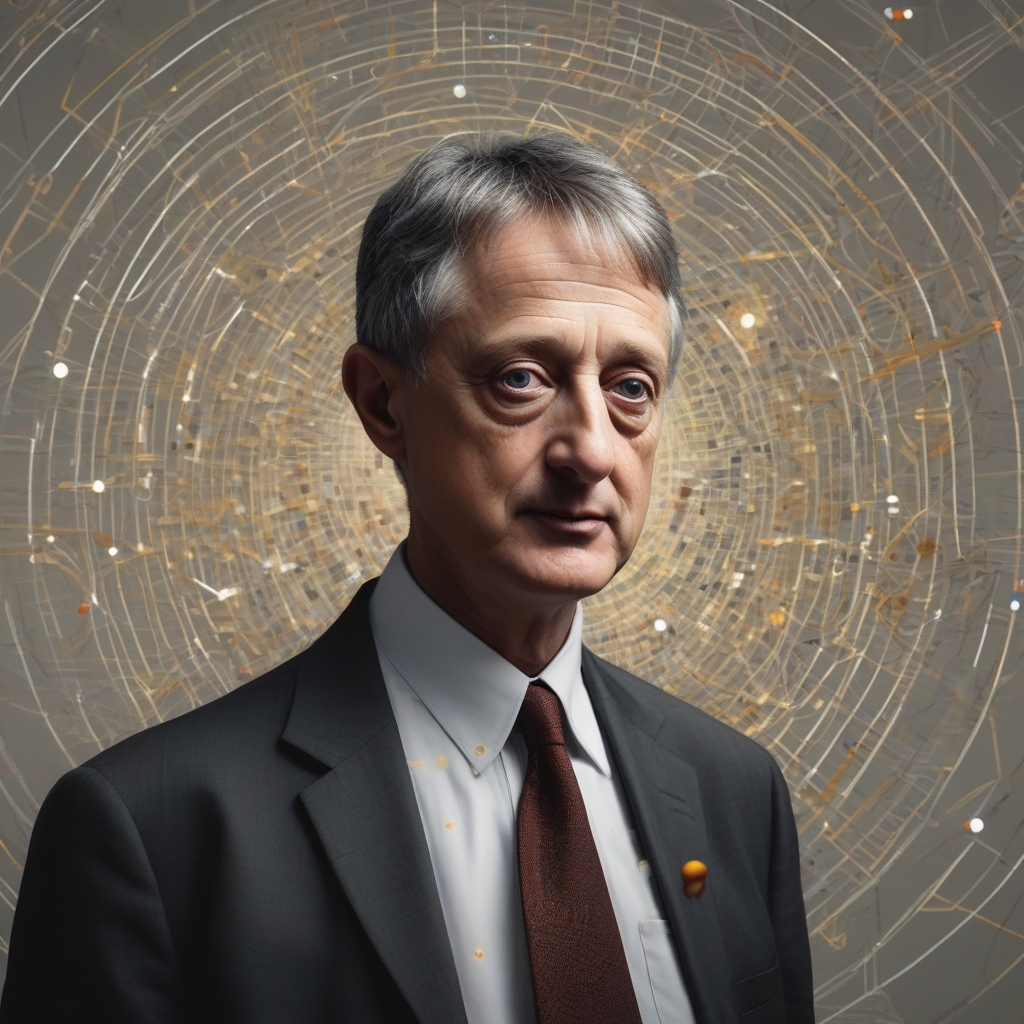Introduction to Geoffrey Hinton’s Revolutionary Impact
In a stunning acknowledgment of his lifelong contributions to artificial intelligence, Geoffrey Hinton, often heralded as the “Godfather of AI,” has received a Nobel Prize. This accolade underscores his pioneering work in developing neural networks—an innovation steering the course of modern AI. Yet, alongside this celebration of achievement lies a growing concern about the ethical and existential implications AI poses for humanity. The dual nature of artificial intelligence, both as a tool for tremendous advancement and as a harbinger of potential risks, finds its champion and critic in Hinton.
The Genesis of Neural Networks
At the core of Hinton’s illustrious career is his groundbreaking development of neural networks, which have become the backbone of today’s AI systems. Neural networks, inspired by the human brain’s structure, allow machines to learn from data, recognizing patterns, and making decisions autonomously. This approach has led to significant advancements in various fields, from healthcare diagnostics to autonomous vehicles.
Breakthrough Contributions
- Deep Learning: Hinton’s work laid the groundwork for deep learning, a subset of machine learning characterized by its ability to learn from unstructured data. This has enabled unprecedented improvements in computer vision, language processing, and more.
- Backpropagation Algorithm: One of Hinton’s significant contributions is the backpropagation algorithm, which made the training of deep neural networks feasible, multiplying the effects of AI applications across industries.
The Broader Implications of AI and Hinton’s Concerns
Despite the immense potential of his work to revolutionize industries, Hinton isn’t complacent about the unchecked growth of AI. He actively voices concerns about the societal impacts and the ethical dilemmas arising from the deployment of highly autonomous systems.
Key areas of concern include:
- Job Displacement: With AI systems becoming more capable, there is growing anxiety about the displacement of human labor across various sectors, necessitating a rethinking of economic and employment models.
- Ethical Decision-Making: As AI systems are entrusted with more decision-making processes, ensuring these systems act ethically and align with human values is increasingly critical.
- Privacy and Surveillance: The enhancement of AI-driven surveillance technologies raises alarming concerns about privacy and individual rights.
Hinton’s Vision for the Future of AI
In accepting the Nobel Prize, Hinton urged the AI community to prioritize safety and approach developments with caution. He advocates for the ethical use of AI, emphasizing three key principles:
- Responsibility: Developers and organizations must take responsibility for the impact of their AI systems, considering long-term societal effects over short-term benefits.
- Transparency: AI architectures should be transparent, allowing scrutiny over their decision-making processes.
- Sustainability: The development of AI should align with sustainability goals to contribute to a positive societal impact and environmental stewardship.
The Nobel Prize: A Catalyst for Ethical AI
Hinton’s Nobel Prize serves not just as a testament to his monumental contributions to AI, but also as a catalyst for conversations surrounding responsible AI development. With this recognition, the focus on AI ethics gains momentum, prompting academia, industry, and policymakers to collaborate on frameworks that balance innovation with ethical considerations.
Conclusion: Celebrating Innovation Amidst Ethical Dilemmas
The narrative around AI, underpinned by Hinton’s award, is one of advancement interwoven with ethical complexity. While Hinton’s contributions have undeniably accelerated AI’s capabilities, they invite an equally critical reflection on the paths we choose moving forward. Ensuring AI’s future contributions benefit humanity without compromising ethical standards remains a task for all stakeholders involved in this technological revolution.

Leave a Reply